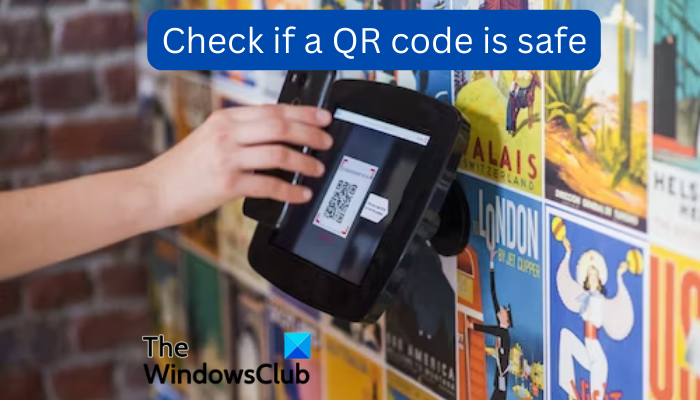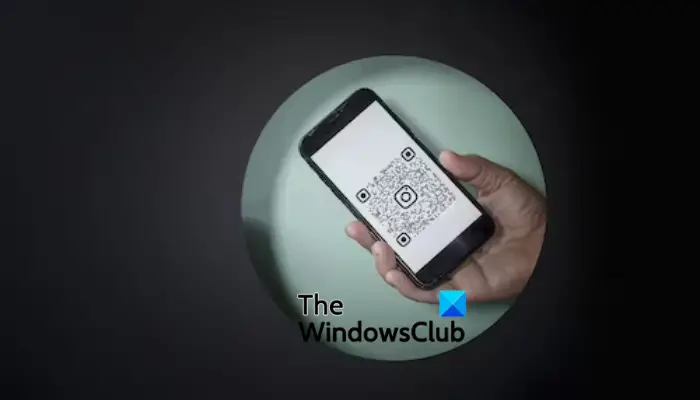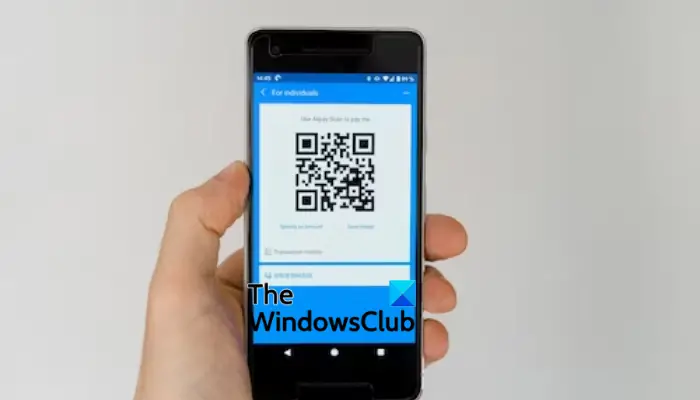QR (Quick Response) codes are meant to be a friendly, fast, and secure way to make payments, get a restaurant menu, book an event, etc., but it might not be so always. Scammers have taken advantage of this technology to breach people’s data. In this article, we will look at how to check if a QR code is safe or not.

In the past few years, there has been an alarming rise in fake QR codes at various establishments like restaurants, car parking areas, shopping malls, etc. The scams hijack normal QR codes and send you malicious links to get access to your personal details like passwords, bank information, card numbers, security codes, etc.
What happens when you scan a QR code with your smartphone?
When you scan a QR Code with your smartphone camera or third-party scanner, it triggers an action like opening a URL, payment processor, restaurant menu, etc. The codes consist of different parameters, which include position markers, data, optional logos, and quiet zones. QR scan doesn’t complete an action; there is a next step, either to confirm your action or to enter a password, especially where sensitive data is required.
How to check if a QR code is safe

Creating a QR code is a super easy process using online QR generator tools. Businesses find it easy to have QR codes on their premises. To check if a QR code is safe or not, you need to consider some factors, such as:
- Check the URL preview: Some QR code scanners have a URL preview feature. Before you proceed, check where it’s directing you and decide whether it’s the actual URL you are expecting.
- Pay attention to the source: Ask yourself where the QR code comes from. Do you trust the brand? If the source is some websites or brands you are unaware of, take a step back and do further analysis.
- Trust your instincts: Use your natural judgment and common sense when you feel something is not right; do not go ahead and scan the code. Your instincts might be right and can save you from selling off your crucial data freely and maliciously.
- Check for overrated bait: Some of the fake QR codes have exaggerated offers that seem too good to be true. Maybe you have seen an email or a poster offering a luxury item at an extremely low price and give you a QR code to scan. Run away from such deals.
- QR code context: Where did you see the QR code? If you come across a QR code in suspicious places like funny emails, street fliers, random sites, etc., there is a high possibility that this is a fake QR code. Also, check the design of the codes; this can tell a lot.
What are the latest popular QR code scams?
With the advancement of technology, scams keep on mutating. Their methods keep on changing as the tech arena grows. The following are the latest QR code scams you might come across currently;
- Fake QR codes sent to your email address about surveys, offers, sweepstakes, casino deals, etc.
- Some QR codes in contactless payment meters, such as parking lots.
- Third-party QR code scanners use this technology to download malware from users’ smartphones and other devices.
- Scammers use fake social media accounts or hack the accounts of your friends to lure you to scan certain deals.
- Crypto deals that seem to be so good. Scammers lure users to click and ‘get’ awesome profits.
- Some even fake a package delivery with fake QR codes. Always preview the URL before you enter your personal details.

The bottom line is that these will keep changing, and new ways to scam people using QR codes will emerge. Always use your natural judgment before you scan or download QR code scanners.
We hope you find something useful in this post.
Read: How to scan a Wi-Fi QR Code on Windows
How do I verify a QR code?
If you want to verify a QR code, use the built-in camera scanner on your phone or pad, then preview the URL before you continue. If it looks suspicious, ask the official owners of the QR code, for example, in restaurants, shopping malls, etc.
Tip: How to create a QR Code in Microsoft Word
Are QR codes safe to scan?
QR codes are inherently safe to scan and are the best contactless methods to make payments, access restaurants, access certain establishments, etc. However, some scammers use these codes to scam unsuspecting individuals.